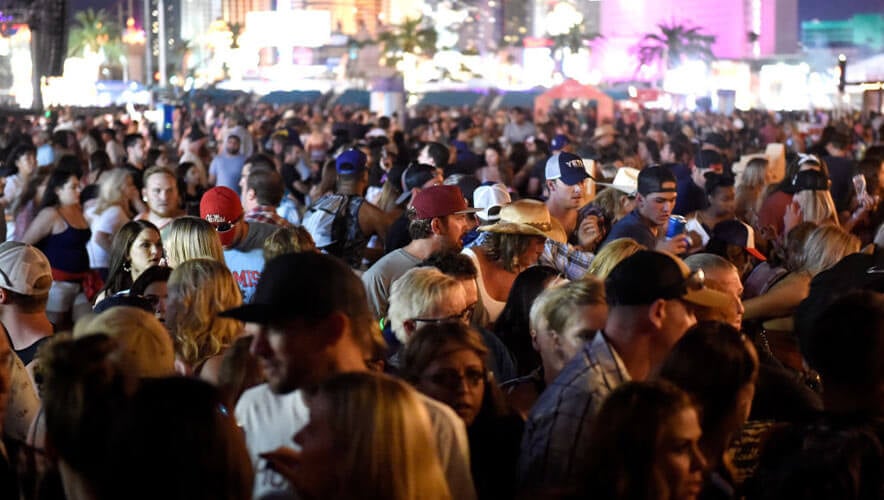Civil Rights Group Files Suit to Discontinue Terrorism Watchlist Created After 9/11
A civil rights group sued U.S. federal government officials this week, alleging a terrorist watchlist is used for “harassment and humiliation” and should be discontinued.
The Michigan Chapter of the Council on American Islamic Rights (CAIR), a grassroots civil rights and advocacy organization, announced the filing of the lawsuit on behalf of 12 plaintiffs against 29 U.S. federal government representatives on Monday, including the U.S. attorney general, FBI director, and the U.S. Secret Service director. Dearborn, Michigan, has the largest Muslim population per capita of any city in the United States.
“In Michigan and across the nation, American Muslims targeted by the federal government’s unconstitutional, discriminatory watchlist and [sic] standing up and demanding justice from the government for 20 years of unjust targeting,” said CAIR-Michigan Executive Director Dawud Walid in a statement. “The time has come for the Biden administration to end the use of the watchlist.”
The lawsuit alleges that the defendants violated Fifth Amendment due process, equal protection under the law, and self-incrimination protections by placing plaintiffs and other individuals on the Terrorist Screening Dataset (TSDS), as well as the No Fly List and Selectee List, without any meaningful process. The suit also charges that the defendants have violated the Fourth Amendment by subjecting watchlisted individuals to unreasonable searches and seizures when they cross the border to enter the United States.
In addition, the watchlist program is a violation of the Religious Freedom Restoration Act by “substantially” burdening individuals' practice of Islam by “repeated and intrusive government inquiry” into their beliefs, religious communities, and religious practices, according to the lawsuit.
The plaintiffs are seeking injunctions that require the U.S. federal government to remedy constitutional and statutory violations by providing individuals on the TSDS and its subsets with a legal mechanism that gives them notice of why they are on the list, as well as a meaningful opportunity to contest their inclusion.
Additionally, the plaintiffs are requesting they be removed from the TSDS and other watchlists that inhibit their travel or ability to access government benefits, that their records of TSDS inclusion be permanently expunged, that the watchlist system be reformed to eliminate any discriminatory focus on Muslim identity or religious practice, and other relief, including a trial by jury and monetary damages.
“Watchlist placement extrajudicially sentences innocent Americans to permanent second-class citizenship,” said CAIR in a statement. “CAIR’s lawsuit reveals for the first time that, even on the rare occasion that the government removes an individual from the watchlist, an individual’s past watchlist will continue to haunt them. Federal agencies retain records of past watchlist status and use them to deny formerly listed individuals access to government buildings, security clearances, federal employment, and other licenses and government benefits.”
TSDS Background
Prior to hijacking the planes that were used in the 9/11 attacks, three of the hijackers—Mohammed Atta, Ziad Jarrah, and Hani Hanjour—were stopped by local U.S. law enforcement for routine traffic violations. At that time, however, no system existed to centrally share and identify the three individuals as people associated with terrorism, so they were not detained. After the attacks in 2003, the U.S. federal government created a single database for identifying information about individuals known to be, or reasonably suspected to be, involved in terrorist activity. That database is the TSDS and it is maintained by the FBI’s Terrorist Screening Center.
Individuals are added to the TSDS if they are reasonably suspected of being a known or suspected terrorist. Only government agencies can add an individual to the TSDS; the FBI says individuals cannot be added to the watchlist based on their race, ethnicity, religion, beliefs or activities protected by the First Amendment, or guesses or hunches.
The TSDS contains thousands of records that are updated daily to be shared with federal, state, local, intelligence, and international partners, according to a fact sheet. The No Fly and Selectee Lists are smaller subsets within the TSD.
In analysis released in June 2023, however, CAIR found that 98 percent of the names on the TSDS are Muslim. The analysis was based on a version of the watchlist that was exposed online by a small airline and discovered by a Swiss hacker.
“It has long been clear to the Muslim community itself that the FBI’s list is nothing more than a list of innocent Muslims,” according to the CAIR report. “The consequences of being on the FBI’s list are borne almost exclusively by Muslims, and even individuals who openly espouse political violence generally do not find themselves similarly targeted so long as they themselves are not Muslim.”
Individuals who are placed on the watchlist are also often not aware of why they were added to the list, the lawsuit alleges.
Plaintiffs “have no idea why the government considers them worthy of permanent suspicion, have no opportunity to dispute the government’s decision or confront the supposedly derogatory information on which their placement is based, and are baffled by Defendants’ apparent determination that they are ‘known or suspected terrorists,’” the lawsuit explains.
In the lawsuit, the plaintiffs charged that placement on the TSDS poses sweeping consequences for individuals and subjects them to a wide range of harms, including humiliation, surveillance, and harassment while traveling. It also prevents travel for milestone life events, job denials, security clearance issues, and in some cases exile from the United States.
For instance, plaintiff and Prospect Park, New Jersey, Mayor Mohamed T. Khairullah was placed on the watchlist in 2019, which subjected him to enhanced screening, travel delays, interrogations, and electronic device searches. He was later removed from the watchlist, but the records of him being on the list continued to be used to harm him—as recently as May 2023.
“As a result, the U.S. Secret Service barred him from entering the White House and attending an Eid al-Fitr celebration earlier this year,” according to the lawsuit.
In an interview with NPR about being turned away from the White House event, Khairullah said the watchlist was unintelligent and based on racial and ethnic profiling.
“I think we need a more intelligent way of protecting the nation rather than somebody writing a report about me that I can’t know about, or—and I’m assuming—that’s how I got on,” Khairullah said. “And I can’t defend myself. I can’t defend my name. I think inconvenience has to be justified, not just throw in a dragnet that’s going to inconvenience 1.5 million people.”
Watchlist Redress
Individuals who believe they are on the TSDS can request redress from the U.S. federal government for travel issues, however there is no redress option for individuals on the list who experience nontravel related harms.
“Defendants do not provide listed individuals, including Plaintiffs, with a meaningful opportunity to confront or rebut the grounds for their possible inclusion in the TSDS,” the lawsuit said. “Defendants provide no information to Plaintiffs and other TSDS Listees—including American citizens and lawful permanent residents—about the specific facts that the TSC considers during the redress process or the specific facts underlying an individual’s nomination and placement to the watchlist. Nor do they provide any opportunity for Plaintiffs and other TSDS listees to contest or correct those facts.”
Additionally, plaintiffs alleged that because so many innocent people are included in the TSDS that it does not provide meaningful information to screening agencies and others seeking to enhance national security.
“…the consequences of being placed on the federal terrorist watchlist are meted out publicly, effectively revealing an individual’s placement on the TSDS to any given listee who attempts to fly, cross a land border, or enter the United States through a port of entry,” the lawsuit explained. “That plain-as-day illustration of a listee’s status leaves Defendants with little ability to use watchlist placement to covertly monitor, investigate, or surveil listees who interact with screening agencies.”
Based on data from the U.S. Customs and Border Patrol (CBP) Agency, for instance, field operators have encountered 442 individuals at ports of entry on the TSDS in 2023 so far. Noncitizens who are on the list may be denied entry to the United States or arrested.
“TSDS watchlisted individuals encountered by the U.S. Border Patrol after entering the country without inspection may be detained and removed, to the extent possible under CBP policy, or turned over to another government agency for subsequent detention or law enforcement action, as appropriate,” according to CBP enforcement statistics.
Previous Watchlist Cases
This is not the first legal challenge the TSDS and No Fly lists have faced. In 2019, for instance, a U.S. federal judge ruled that the database the government uses to compile its terrorism watchlist violated Americans’ rights.
“The ruling stems from a case brought by 23 Americans who said that the government’s inclusion of them on the terrorism watchlist was a violation of their due process rights,” according to previous Security Management coverage. “They claimed that they were not given notice that they were included on the watchlist or the ability to refute any derogatory information that placed them on the list.”
Two years later, the U.S. Supreme Court concluded that three Muslim men could pursue a lawsuit against FBI agents who placed them on the No Fly List after they refused a Bureau request to serve as informants. The Court ruled that the Religious Freedom Restoration Act allows people to pursue “appropriate relief,” including money damages against government officials in their individual capacities, Security Management wrote at the time.
The latest legal challenge (Khairullah v. Garland, et al) was filed in the U.S. District Court for the District of Massachusetts. The plaintiffs demanded a jury trial, but no hearings have been scheduled yet.










